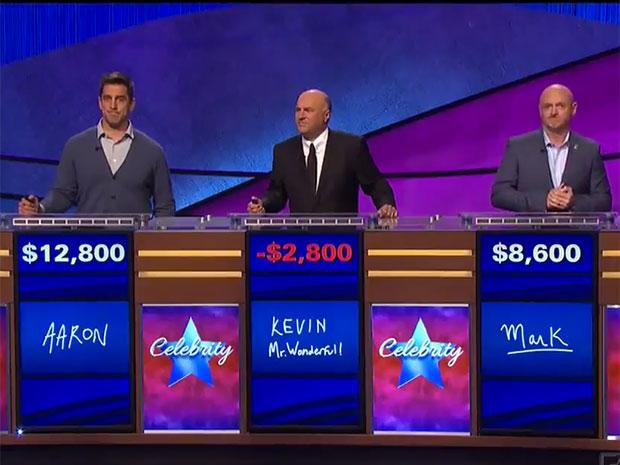Kevin O’Leary: One Business Record That Leaves Something To Be Desired

By Evan Sumner
Kevin O’Leary, like most businessmen, has a long history of success and failure. Though his successes are rarely so big as advertised and his failures often much larger.
An article published by The Globe and Mail in 2012 does a thorough job of detailing both. It is not O’Leary’s success rate that stands out when looking through his past deals however – it’s the tendency of those deals to either end in some kind of lawsuit or significant net losses for those involved.[1]http://www.theglobeandmail.com/report-on-business/rob-magazine/kevin-oleary-hes-not-a-billionaire-he-just-plays-one-on-tv/article4564334/?page=alle
One of O’Leary’s first business acquisitions was The Learning Company (TLC) – a software company originally based out of San Francisco. Under O’Leary’s guidance, it reported consecutive annual net losses upwards of $100 million and eventually developed a reputation as a “house of cards” among the business community.[2]http://business.financialpost.com/news/kevin-olearys-business-history-back-in-spotlight-after-entering-race-for-conservative-party-leader
So it came as a bit of a surprise when Mattel Inc. purchased TLC for nearly $4 billion in 1998. Perhaps not so surprising was what happened next.
Following its acquisition, TLC’s projected quarterly performance quickly went from an expected $50 million in profit to $50-100 million in losses. Mattel’s stock price essentially collapsed and billions in shareholder value disappeared overnight.
Six months later O’Leary, who was initially kept on as head of the new TLC division in Mattel, was given the boot. Though this may not have bothered him much as he had somehow managed to sell his share of Mattel stock before any losses were announced. In the end, Mattel’s investors lost millions while O’Leary walked away with approx. $11.2 million.
Mattel’s shareholders subsequently filed a class action lawsuit. The lawsuit alleged that TLC misled them with dubious accounting tactics intended to hide any losses and inflate TLC’s profit margin. The lawsuit, which named O’Leary among the defendants, eventually settled for $122 million.
Mattel’s acquisition of TLC has since become known as one of the most disastrous mergers in history. However, it is by no means the only business deal that has led some to question O’Leary’s self-proclaimed business savvy.[3]http://www.nationalobserver.com/2016/01/26/news/real-and-shocking-story-kevin-olearys-business-career His former mutual fund company is another good example.
By 2008, having successfully established himself as a business guru, O’Leary started looking for ways to capitalize on his fame. One way he did so was by leveraging his public platform to promote his own mutual fund company – O’Leary Funds.
However, O’Leary didn’t actually have a broker’s license or the necessary experience to manage other people’s money. As a result, he had to hire others to do it for him. The fact he didn’t manage the fund himself may be what led him to make promises he couldn’t keep. That and his need to maintain his mythical persona as a business man a cut above the rest.
For awhile his fame did the trick and the funds took off. Yet, by 2012, O’Leary’s broken promises had led to a growing number of investment managers pulling their money out of the fund. This trend continued right on up until last fall when O’Leary finally sold it off.
All in all, O’Leary’s business record appears to fall short of what you might expect from a self-proclaimed business guru. That said, while his dealings may be lackluster at times or occasionally leave some participants significantly worse off than when they started, O’Leary himself has frequently come out on top.[4]http://www.canadianbusiness.com/blogs-and-comment/kevin-oleary-conservative-leadership-bid-business-record/ As a result, some might argue that O’Leary has not only done well for himself, but to act as he has, solely in his own self-interest, is just good business.
What may be true in business, however, is not necessarily true of politics or, more precisely, governance. Put another way, imagine if O’Leary suddenly admitted to joining the leadership race solely as a means of reinvigorating his waning public profile and boosting his personal income. How many Canadians want a self-proclaimed, entirely self-interested business guru as their next Prime Minister?
References
| 1. | ↑ | http://www.theglobeandmail.com/report-on-business/rob-magazine/kevin-oleary-hes-not-a-billionaire-he-just-plays-one-on-tv/article4564334/?page=alle |
| 2. | ↑ | http://business.financialpost.com/news/kevin-olearys-business-history-back-in-spotlight-after-entering-race-for-conservative-party-leader |
| 3. | ↑ | http://www.nationalobserver.com/2016/01/26/news/real-and-shocking-story-kevin-olearys-business-career |
| 4. | ↑ | http://www.canadianbusiness.com/blogs-and-comment/kevin-oleary-conservative-leadership-bid-business-record/ |



